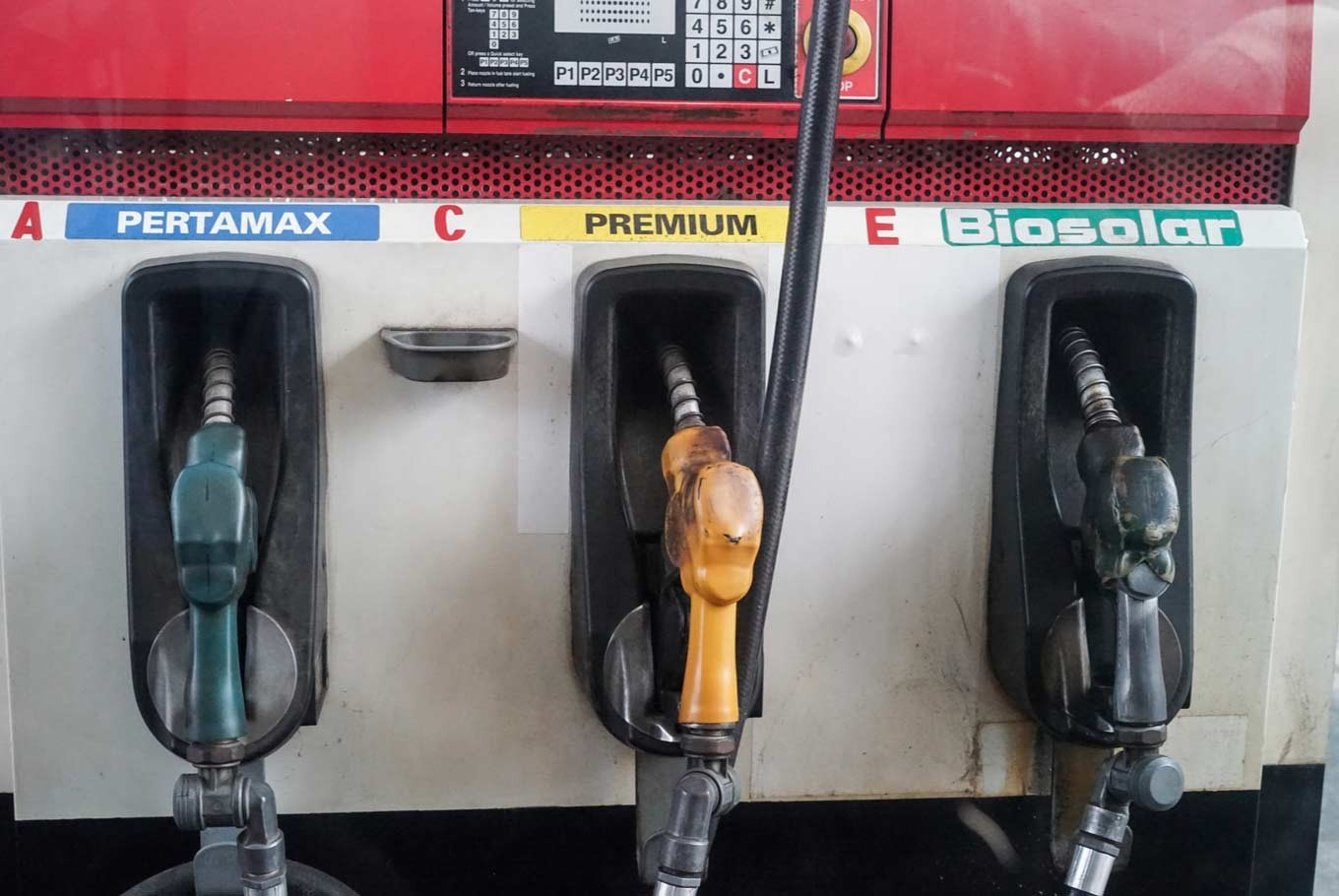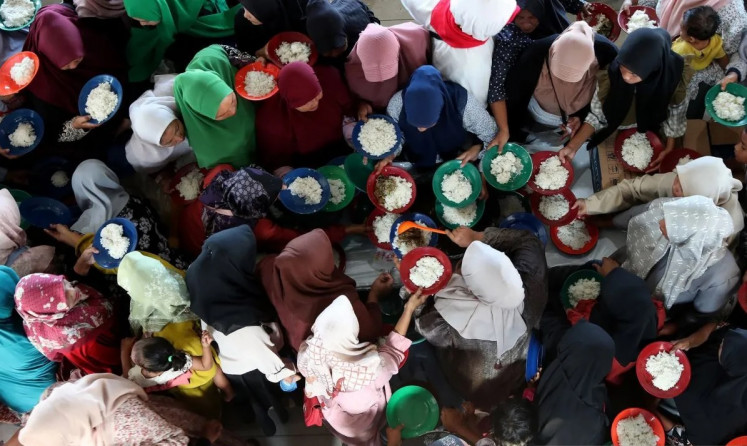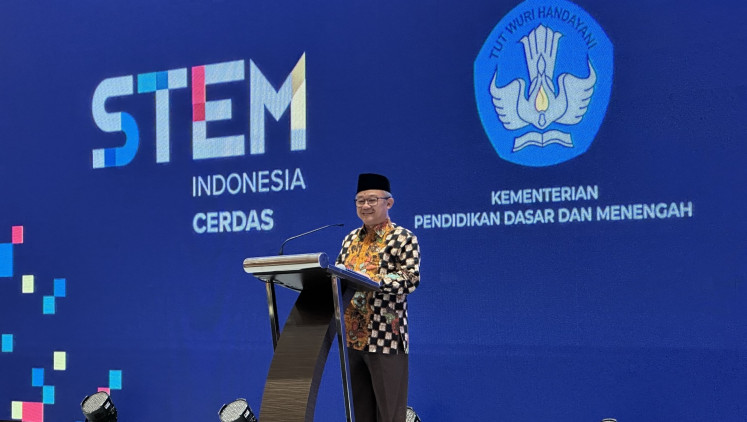Popular Reads
Top Results
Can't find what you're looking for?
View all search resultsPopular Reads
Top Results
Can't find what you're looking for?
View all search resultsOil price increase calls for bold reform of fuel-subsidy policy
The share of income tax receipts from oil and gas in total government revenue had fallen from 9 percent in 2001 to 2 percent in 2020.
Change text size
Gift Premium Articles
to Anyone
T
he almost 59 percent rise in international oil prices in 2021 due to the strong economic recovery and the additional increase of over 24 percent in the last two months caused by the geopolitical conflict in Ukraine should jolt the government to reform its fuel subsidy policy to maintain prudent fiscal management and reduce dependence on fuel imports.
Before 2004, when Indonesia was still an oil exporter, it was still correct to assume that Indonesia would benefit from a rising oil price. However, after 2004 when the country became a net oil importer, the situation reversed.
A recent study by Zainal et al. concluded from quarterly data between 1990 and 2018 that Indonesia’s gross domestic product responded positively only when the oil price was below US$47 per barrel. As a comparison, Malaysia’s GDP responded negatively to low oil prices (below $37 per barrel) and positively to high oil prices (between $37 and $55 per barrel).
The Indonesian oil and gas trade deficit has risen steadily to as high as $2.28 billion last December alone. The gap is a structural problem that needs to be addressed. This is because the share of income tax receipts from oil and gas in total government revenue fell from 9 percent in 2001 to 2 percent in 2020.
Indonesia therefore should cut its dependence on oil imports by increasing domestic production. Oil imports can be reduced or controlled by reducing domestic fuel consumption.
Since fuel is consumed mostly in the transportation sector, fuel consumption can be controlled or even cut down if gasoline prices are increased to force motorists to use more fuel-efficient vehicles. Indonesia’s price of gasoline per liter (for Premium RON 88 gasoline) was the lowest in the ASEAN-5 countries in 2017.
In 2015, the government tried to reduce gasoline subsidies by implementing a fixed subsidy for diesel and removing subsidies from gasoline, except the low-octane Premium in less-populated areas. This policy was expected to bring gasoline prices closer to the market price.
True, this policy cut fuel and electricity subsidies by 75 percent in 2015 but it turned out that such a subsidy reduction could have taken place only with low oil prices.
In 2016, the Brent oil price declined by 45 percent to $52.6 per barrel. However, as the global oil price increased the policy of the fixed nominal amount of subsidies became less effective in reducing subsidies because the amount of the fixed fuel subsidy per liter has never been adjusted since 2017. For example, currently, the price of Pertalite RON 90 is Rp 7,650 (40 US cents) per liter while its economic price should at least be Rp 12,000 per liter. While Pertalite now accounts for almost 70 percent of total gasoline consumption.
The positive impact of course is that Indonesian inflation remained relatively low at rate at 2.1 percent year-on-year as of February 2022, while other emerging countries such as Malaysia, Brazil and Mexico recorded annual inflation at 5 percent, 10.4 percent and 7.1 percent respectively.
It has become more urgent to control the fuel subsidy because international oil prices have now become twice as high as the average price assumed for setting domestic fuel prices and subsidies in 2022.
The fuel subsidy scheme should be reformed with a better-targeted model. Integrated Social Welfare Data (DTKS) should be key to determining which group of people are eligible to receive subsidies.
It also needs to ensure timely and adequate social assistance for the poor and vulnerable whenever oil price shocks happen.
***
The writer is an analyst at the Finance Ministry’s Fiscal Policy Agency. The views expressed are her own.











